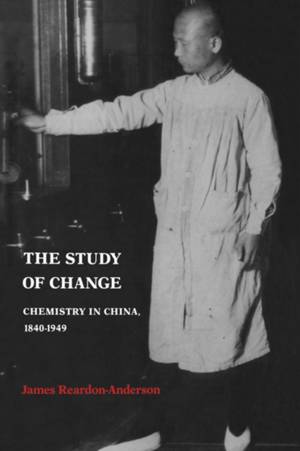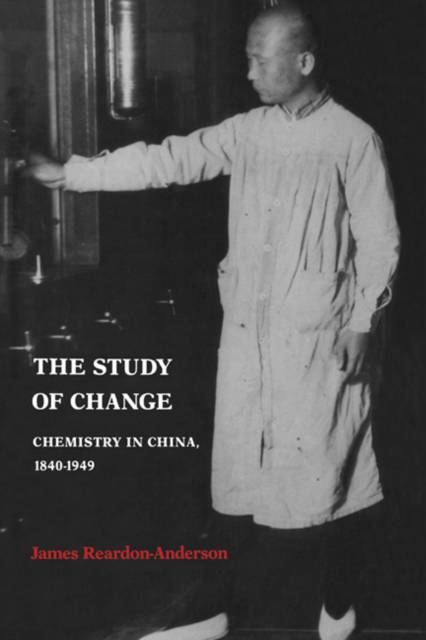
Door een staking bij bpost kan je online bestelling op dit moment iets langer onderweg zijn dan voorzien. Dringend iets nodig? Onze winkels ontvangen jou met open armen!
- Afhalen na 1 uur in een winkel met voorraad
- Gratis thuislevering in België vanaf € 30
- Ruim aanbod met 7 miljoen producten
Door een staking bij bpost kan je online bestelling op dit moment iets langer onderweg zijn dan voorzien. Dringend iets nodig? Onze winkels ontvangen jou met open armen!
- Afhalen na 1 uur in een winkel met voorraad
- Gratis thuislevering in België vanaf € 30
- Ruim aanbod met 7 miljoen producten
Zoeken
€ 90,95
+ 181 punten
Uitvoering
Omschrijving
When Western missionaries introduced modern chemistry to China in the 1860s, they called this discipline hua-hsueh, literally, "the study of change." In this first full-length work on science in modern China, James Reardon-Anderson describes the introduction and development of chemistry in China in the late nineteenth and early twentieth centuries, and examines the impact of the science on language reform, education, industry, research, culture, society, and politics. Throughout the book, Professor Reardon-Anderson sets the advance of chemistry in the broader context of the development of science in China and the social and political changes of this era. His thesis is that science faired well at times when a balance was struck between political authority and free social development. Based on Chinese and English sources, the narrative moves from detailed descriptions of particular chemical processes and innovations to more general discussions of intellectual and social history, and provides a fascinating account of an important episode in the intellectual history of modern China.
Specificaties
Betrokkenen
- Auteur(s):
- Uitgeverij:
Inhoud
- Aantal bladzijden:
- 468
- Taal:
- Engels
- Reeks:
Eigenschappen
- Productcode (EAN):
- 9780521533256
- Verschijningsdatum:
- 18/12/2003
- Uitvoering:
- Paperback
- Formaat:
- Trade paperback (VS)
- Afmetingen:
- 152 mm x 229 mm
- Gewicht:
- 680 g

Alleen bij Standaard Boekhandel
+ 181 punten op je klantenkaart van Standaard Boekhandel
Beoordelingen
We publiceren alleen reviews die voldoen aan de voorwaarden voor reviews. Bekijk onze voorwaarden voor reviews.











